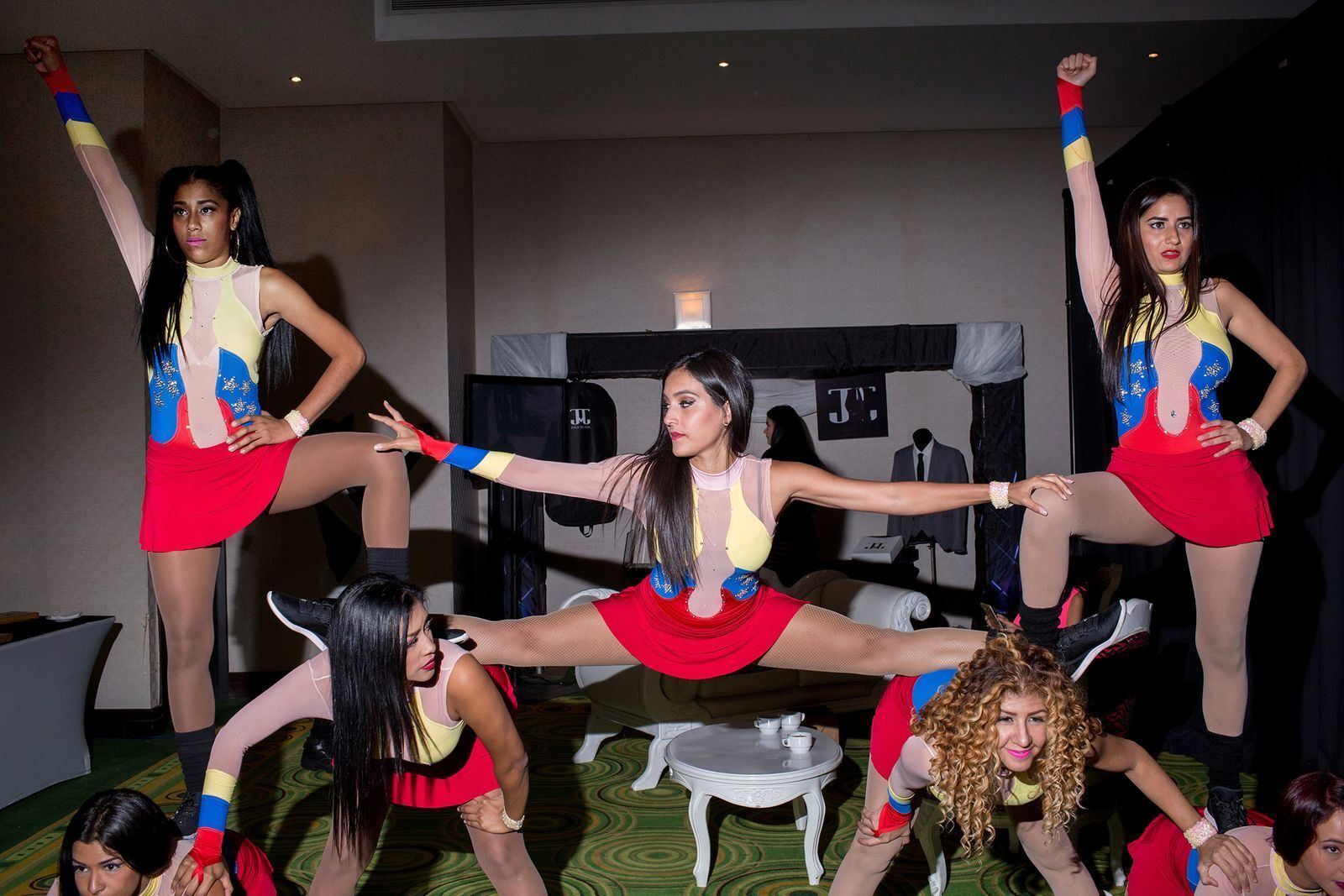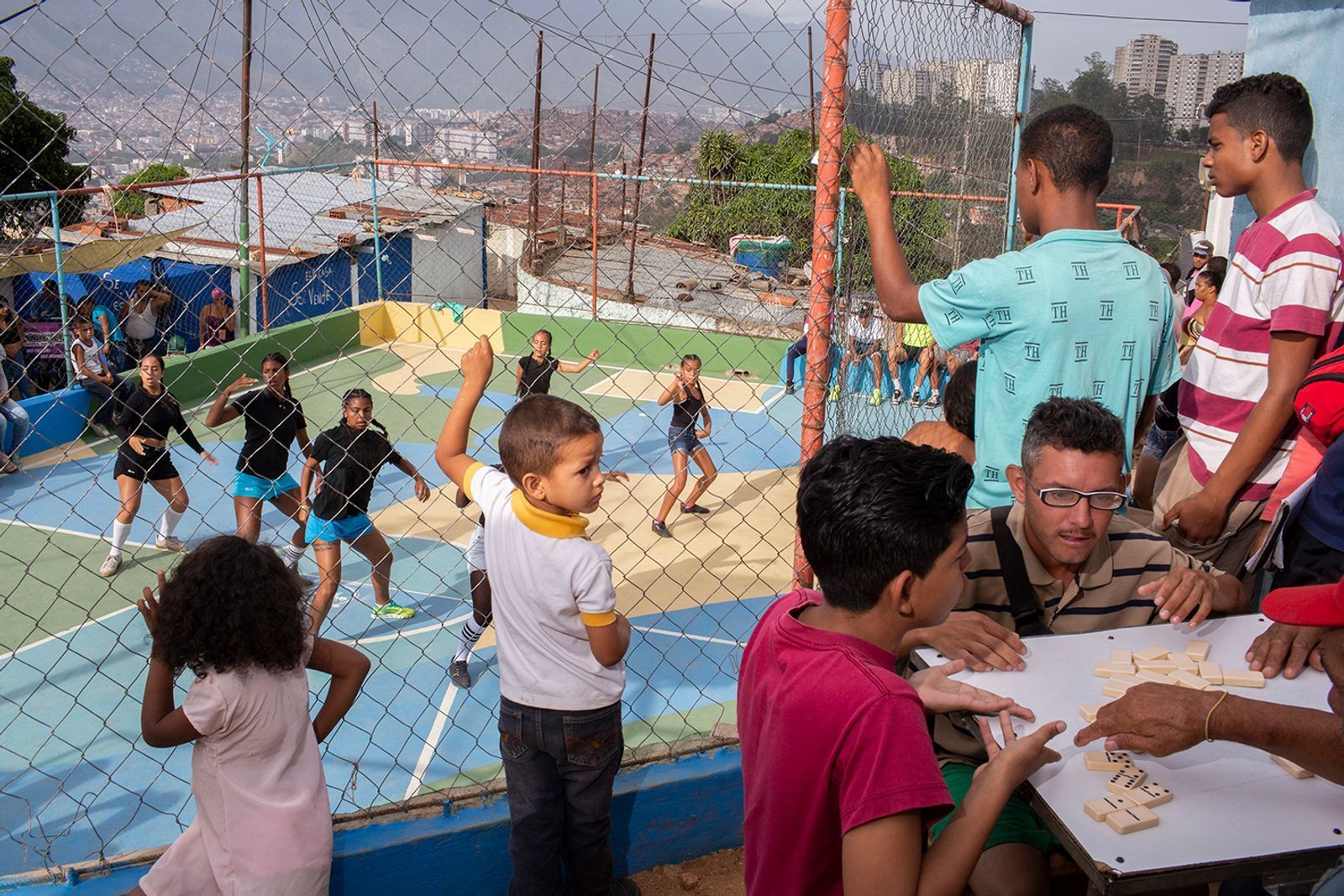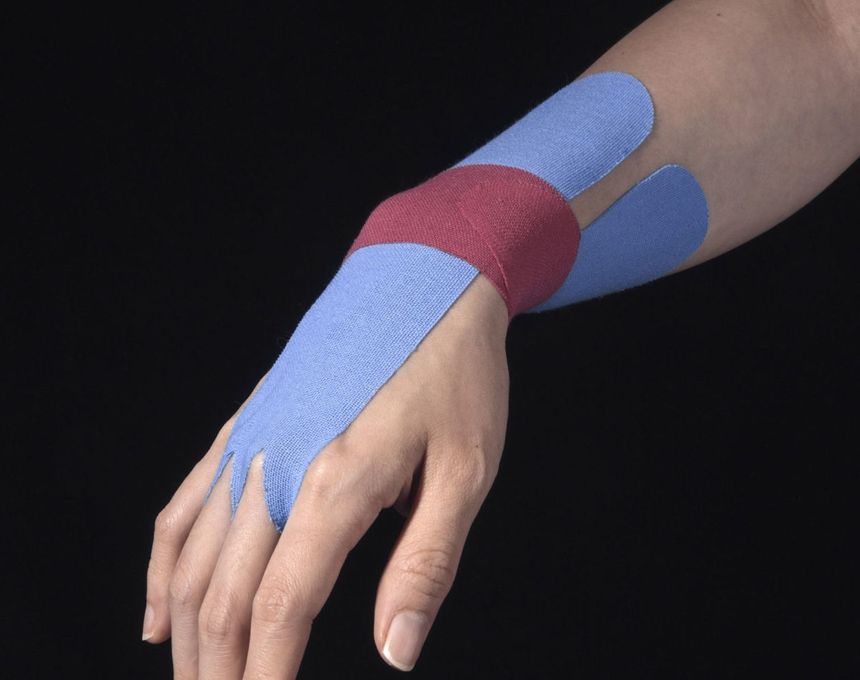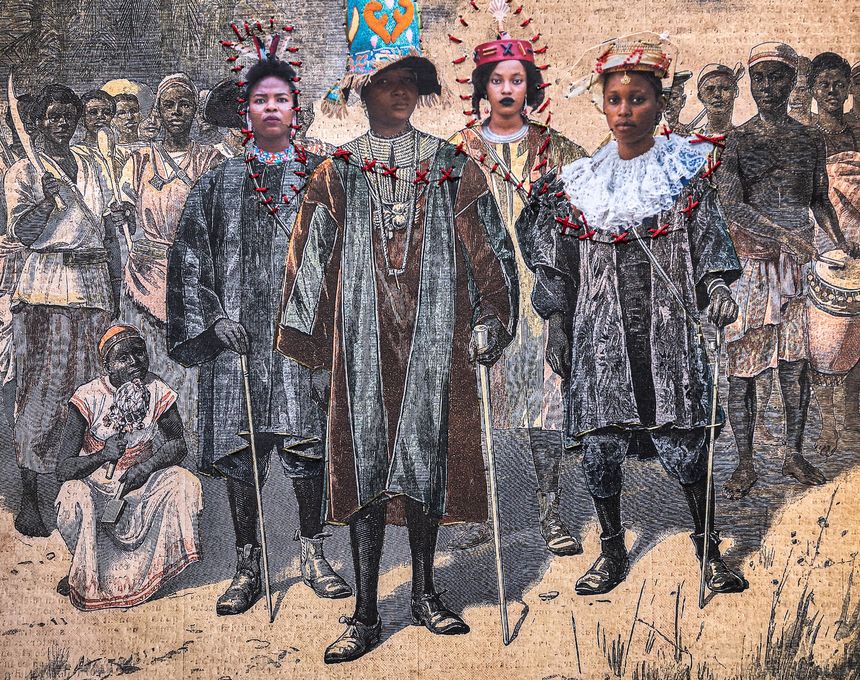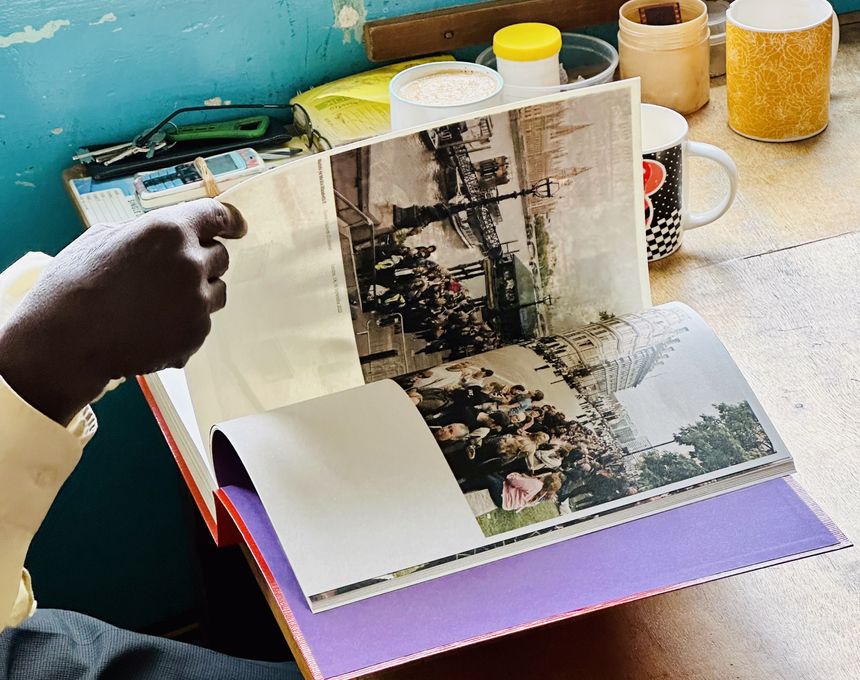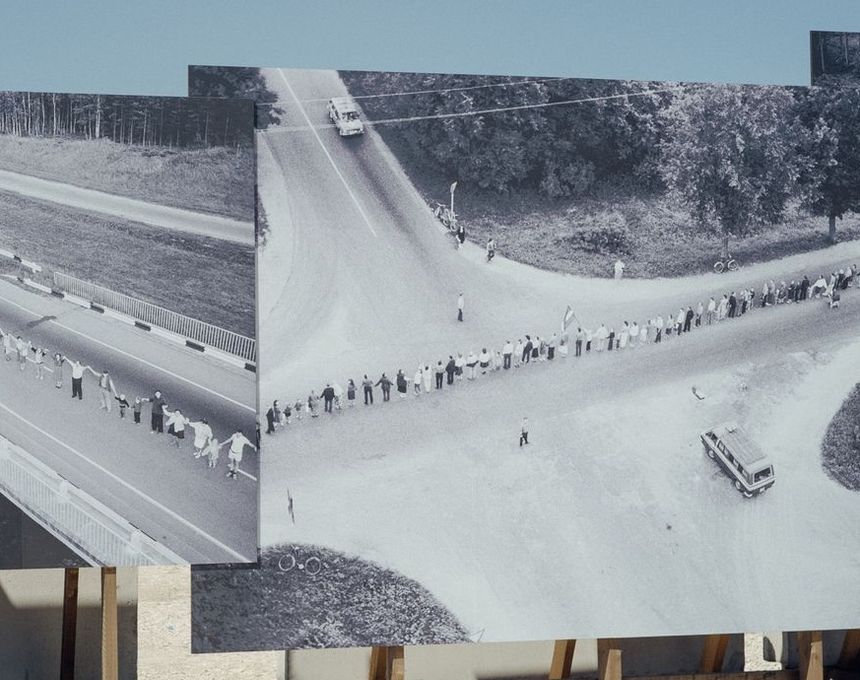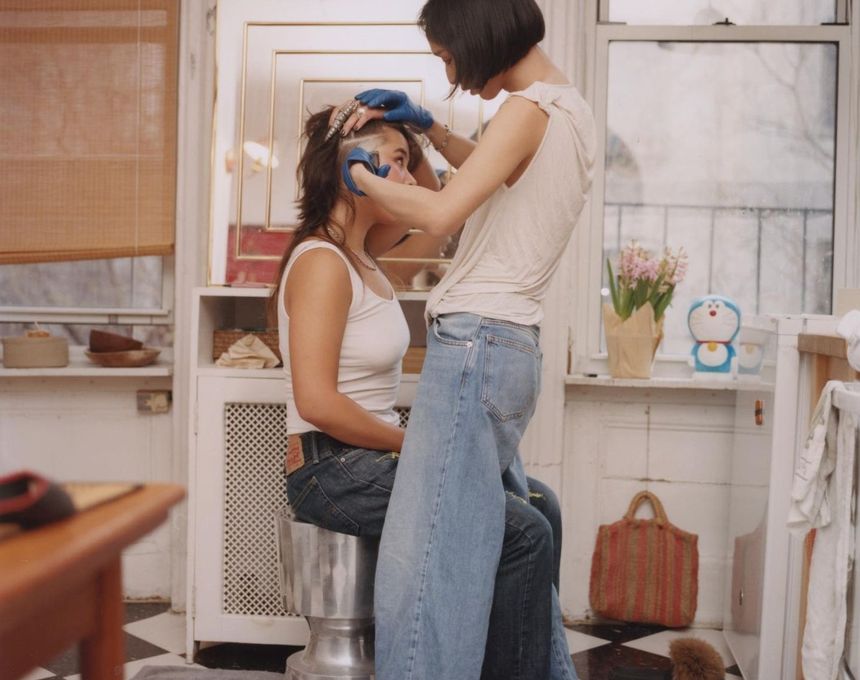Natalie Keyssar on the PHmuseum Women Photographers Grant
-
Published24 Sep 2020
-
Author
The American documentary photographer shares her thoughts on gender inequality in the photography industry, her experience after receiving last year's main prize, and her insights for applicants to the current edition.
The American documentary photographer shares her thoughts on gender inequality in the photography industry, her experience after receiving last year's main prize, and her insights for applicants to the current edition.
Natalie Keyssar is a documentary photographer based in Brooklyn, New York, whose work focuses on class inequality, youth culture, and the personal effects of political turmoil and violence, primarily in the US and Latin America. While travelling between the two continents over a period of 5 years, she narrated the surreal daily of women coping with the deep political and economical crisis that hit Venezuela in her project Make Me A Little Miracle. This work allowed her to claim the main prize of the PHmuseum 2019 Women Photographers Grant, which in turns offered her the opportunity to keep developing the story. In this interview she tells us more about her experience and why is still important to support female and non-binary photographers and keep the conversation alive.
Hi Natalie, let's start from gender inequality in the photography industry. Are things improving in your opinion and what would you change, if possible?
This conversation is important and relevant for so many reasons. Just look at the number of women photographers compared to men, and also the proportion of white photographers compared with photographers of colour, in virtually any space in our industry. From museums to photojournalism, to fashion and commercial work, photography is still overwhelmingly dominated by white men and their gaze. Photography is how we all see the world, even more as we increasingly interact with the world through screens. I'm constantly reminded of the hypnotic power of the repetition of certain types of images and tropes that we all consume from Instagram to history books to tv to newspaper images to advertising. We imprint on the white male world view as a baseline standard of perception from such an early age, and i think ill be struggling to free my own vision from that my whole life. The effects are more than theoretical. Unchecked, that dominating world view reinforces colonialism, racism, and gender violence. It leads women to see the value of our bodies in terms of male appraisal and objectification, it filters everything through a lens of safety and privilege in a world where few are safe as a direct result of that inequality. And by this, I do not mean to say that all images created by white men are inherently colonial or sexist, far from it, but I think the imbalance in perspective has to be corrected, and we are early in that process. We live in a world where at least 1 in 4 women is the victim of sexual assault, where black people in my country are executed by police regularly with no consequences, and where a person's right to safety, education, and food on the table is largely determined by the random luck of where they are born. Artists play a huge role in shaping our societies and our future, and I think centring the perspective of women and non-binary photographers can be revolutionary and healing.
In this context and after the long-term effort in developing the project, what last year recognition meant for you and how did it support you in that specific moment of your career?
Winning the PHmuseum 2019 Women Photographers Grant main prize was a huge honour and personally felt like an affirmation that I'm on the right track. I'm really grateful that Make Me A Little Miracle resonated with the judges, all people I respect immensely. Making this body of work has been a constant learning process for me for the past 6 years, and I was very proud to share these stories in the company of the incredible other women photographers. I really value PHmuseum for creating a canon of women photographers from various disciplines that i constantly use as a reference for inspiration. The prize money allowed me to spend February and some of March in Venezuela, continuing this work, and teaching a Women's Empowerment Through Photography workshop for free in Caracas, in collaboration with my dear friend Lexi Grace Parra and her incredible organization Mira Venezuela. We were able to spend time with an incredible group of young women discussing and teaching and learning together about everything from studio photography and representation of women in photographic history to domestic abuse and emotional labour. It also garnered some wonderful opportunities for press and assignments related to the project.
How do you think initiatives like ours can support female photographers and more broadly public awareness? Would you recommend to apply?
As a photographer working somewhere in between art and documentary and journalism, this one meant a lot to me because the judges represented the best of all different photography disciplines and that has resulted in my work being included in conversations outside of the journalism world where I make my living. Frankly, I hate the need for women-only shows and competitions etc, because it creates a problematic dynamic of separation and tokenism, but until we achieve equal representation among gatekeepers and makers, we urgently need spaces like this grant. And I'm always blown away by the quality of work in this competition partially because the usual suspects are excluded and it creates more space for the innovation that I associate with the best women/non-binary shooters.
What advice would you give to this year's applicants?
I think this competition supports innovative, personal, boundary-pushing approaches to photography more than almost any other. For some competitions, I feel pressure to edit to keep things easily legible for a more traditional photographic audience. For this competition, I strongly suggest editing your project for what you truly want it to be, not what any traditional standards or other people's visions tell you it's supposed to be. Trust your gut and your personal vision.
-
The PHmuseum Women Photographers Grant, now in its 4th edition, aims to empower the work and careers of female and non-binary professionals of all ages and from all countries working in diverse areas of photography. To learn more and apply please visit phmuseum.com/w20.
